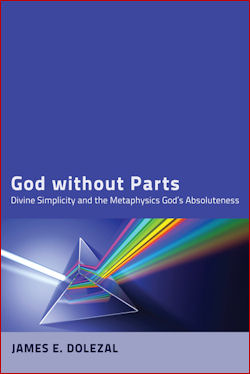by Dan Phillips
As I read through the first part of Jeremiah 13, an instructive and timely pattern leapt out at me.

In verse one, Yahweh instructs the prophet to purchase and wear a linen loincloth. In verse 2, Jeremiah does it. Period. Then, and only then, does the prophet receive another word from Yahweh.
Pause and reflect on that. Such a trivial command, no? As if God parted the heavens to tell you to buy a can of olives, or a jar of mayonnaise, and put it on the shelf?
If that were the case, would it be lawful and reasonable to ask why this command was given? Sure, I don't know why not. We could ask. But suppose no answer was forthcoming? What then?
In response, let me ask four questions of my own:
- Was the directive surely from God?
- Was the directive clear enough?
- Does God deserve obedience, regardless of the presence or absence of further explanation as to His rationale?
- Would it in any sense be unreasonable to say that disobedience, dithering or delay would itself be unreasonable?
In the Biblical example before us, the answers are clear enough. To the first three questions, I would suggest that
Yes is the only reasonable answer; and, to the fourth, only
No.
Suppose Jeremiah never received one further word from Yahweh. The entry for that day might be, "Dear Diary: today, Yahweh told me to buy a belt, so I did." The diary's last entry of his life might include, "...oh, and I never found out what the deal with the belt was. But that's okay. He's Yahweh. I'm not."
Why would it be "okay"? Do this mental exercise. List for me every last being who
does not have exhaustive knowledge of the nature, meaning and significance of every fact or event that ever
has existed or will exist, as well as every fact or event that
might have existed.
That will be a very, very long list. Blogger won't allow you to write all the names in your comment. This list will contain the name of every last sentient creature, of any order, ever.
My name will be on that list. Yours, as well.
Now: list for me every last being who
does have exhaustive knowledge of the nature, meaning and significance of every fact or event that ever
has existed or will exist, as well as every fact or event that
might have existed.
That will be a very short list. It will contain only one name: God.
At this point — because this is what they do — your village atheist might sputter and fume with explosive, scornful fury. But, just to be blunt and plain, that's what Hell is all about, and that is why only people who deserve to be in Hell will be in Hell... and why we all deserve to be in Hell. The idea of a God who deserves ultimate and all-consuming love and respect and obedience, simply because He is God, is abhorrent, and the rejection of that premise is what launched the doomed project known as "the world."
Back to our passage. The issue to Jeremiah, once he received this seemingly nonsensical directive, is this and only this: is Yahweh worthy of faith, love, and obedience?
That, right there, is the archetypal question. It was that same question in the Garden, and it was at that same point that our great-great-greats answered wrongly, and doomed us all.
You see, they had a word from God that was also clear and sufficient: don't eat the fruit of this tree, or you will die. In that, they actually had
more than Jeremiah had, in that they had a known consequence. So the issue was
exactly the same: was Yahweh worthy of faith, love, and obedience?
Sure, they could have asked a million questions. Why that tree? Why
make that tree? Why put that tree
there? and on and on. But the trump to every last question was the answer to the same four questions above, and the answer would have been
exactly the same. Did they need to know the answers to any of those questions in order to know what they must do, and why? No.
But Eve listened to Satan, and decided that epistemological autonomy was the way for her. Maybe Yahweh was right, maybe He was wrong. Who knows? She would decide for herself. She would cull reasons and information from sources that made sense to her, and give and pursue the answer that made sense to her. The locus of authority, the pivot-point of the universe, shifted at that moment from the throne of Yahweh to the mind of Eve — though only in her mind.
And Adam said, "Sure, honey, whatever."
And what in the world does that have to do with the post's title?
Simple. We can ask a million questions about God's Word, too. Why did this and that happen, according to the Bible? Why can't men do this and this, and why must they do that and that? Why can't women do this and this, and why must they do that and that? And children? Why must we believe this, and disbelieve that? Why must we preach this, and denounce that?
While I am forced to say that we are, all of us, inconsistent with what we should believe and do, and we all fail and sin in one way or another; I am equally forced to say that we are compelled to ask and answer the same four questions as we posed of Yahweh's quizzical-but-crystal-clear command to Jeremiah, above.
This is the dividing-point between orthodoxy and heterodoxy, and between faithfulness and faithlessness. And here, too, is the dividing-point between those who rest in the sufficiency of Scripture, and the endlessly-discontented Leaky Canoneers.
Both groups share in common that the Bible doesn't tell them all that they would like to know or hear. The difference is that the first category trusts God's wisdom and goodness, and sets itself in faith to make the most of every bit God's abundant provision — whereas the second sets itself to invent and pursue different avenues to get the experiences and knowledge they demand.
Though both claim "faith" as their motivator, I think the Biblical definition and illustration will properly apply only to one of the orientations.
To the other, other Bible words and other analyses will apply.









 ime was when an educated ministry was looked upon by certain of our brethren as a questionable blessing; indeed it was thought that the less a minister knew the better, for there was then the more room for him to be taught of God.
ime was when an educated ministry was looked upon by certain of our brethren as a questionable blessing; indeed it was thought that the less a minister knew the better, for there was then the more room for him to be taught of God.









 t one of the memorable gatherings under "The Question Oak," a student asked Mr. Spurgeon, "Are we justified in receiving Mr. Darwin's or any other theory of evolution?"
t one of the memorable gatherings under "The Question Oak," a student asked Mr. Spurgeon, "Are we justified in receiving Mr. Darwin's or any other theory of evolution?"






 ur missionaries and our clergymen have assumed a kind of superiority and dignity over the people; they have called themselves clergy, and the people laity; and the result has been that they have weakened their influence.
ur missionaries and our clergymen have assumed a kind of superiority and dignity over the people; they have called themselves clergy, and the people laity; and the result has been that they have weakened their influence.

 t's the day after Thanksgiving, and it would be gauche to complain on such a day, so let me just say that one of the things I'm most thankful for is that this week is finally nearing an end.
t's the day after Thanksgiving, and it would be gauche to complain on such a day, so let me just say that one of the things I'm most thankful for is that this week is finally nearing an end.
 My other reading selection on this trip is
My other reading selection on this trip is 
















